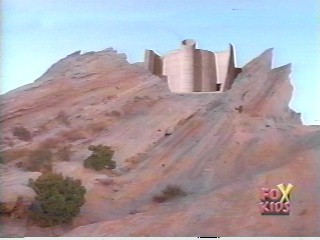Whenever people ask me what it is that I am actually doing here in Macedonia, I either default to saying "archaeology", or explain that it's complicated, and leave it at that. More and more, however,
this scene from Office Space starts playing in the back of my head, although with slightly different dialogue:
Bob&Bob:
So you physically dig the archaeological site?Me:
No. . . no the archaeologists do that. Bob&Bob:
So you much physically examine the sites and report on the data. Me:
Well, not exactly. Bob&Bob:
So what is it, would you say, that you actually do here? Me:
(nervous breakdown)
I don't even think my own family has any clue what I'm doing over here. So, lest anyone think that this is strictly a US State Department funded vacation, I will attempt to explain what I have been doing and what I hope to accomplish.
I am no archaeologist - let me make that clear. I have an undergraduate degree in Classics, and absolutely no formal training in archaeological method. Through my studies, however, I have always wandered about on the periphery of the archaeological world, and that is where I remain. I know a bit about archaeological ethics, the international art market, and looting; my Honor Scholar thesis dealt with these topics. I worked as the assistant to the Book Review Editors of the American Journal of Archaeology, and I absorbed quite a bit of information about archaeological publishing efforts during that time. But I have never picked up a shovel, dusted off a pot sherd, or broken down an ancient booby-trapped tomb door to rescue glittering treasures from Nazis, Communists, or any other existential threat to American liberty. Yet.
My original proposal was, as I said in my introductory blog post, necessarily vague. I had no idea what I would find once I arrived in Macedonia. Now that I have been here for a month and a half, I have a much better idea of the state of archaeological affairs, and therefore, what I might be able to accomplish. Right now, my activities can be grouped into Research, Networking, and Academic Aid. Allow me to explain:
1.
Research: I am affiliated with the Institute for Ethnology and Anthropology at Ss. Kiril and Methodius University, and I also spend time with the Faculty of Archaeology. At the Institute, I am giving myself a crash-course in anthropology, while reading as much as I am able about Macedonian ethnography and history. My main project here, however, is trying to figure out what sort of sociological factors affect views of archaeology and archaeological looting here in Macedonia. Do folk stories of cursed Turkish gold keep villagers from digging around sites? Alternatively, are stories of wild treasures too enticing to keep them away? Macedonia has a problem with archaeology fading into nationalism (through Alexander the Great, etc.) and affecting present-day political issues. I'm interested in how all this came about, and in where it may be going.
2.
Networking: I've been spending a great deal of time traveling around Macedonia, meeting with archaeologists at their dig sites. Despite being a tiny country, many archaeologists really don't know or talk to each other. There isn't much ongoing conversation between state archaeologists working for the Ministry of Cultural Heritage and archaeologists on the University faculty; neither of these groups has much communication with the archaeological community outside of Macedonia. Political, professional, and personal problems have all combined to keep Macedonia insulated from the wider academic world. I'm doing my best to connect people, share information, and pass along contacts.
3.
Academic Aid: This is fairly broad, and mostly just involves the skills that come with being a reasonably competent American university graduate. I'm helping professors and students with their English conversation abilities. Later in the semester, I will be editing, proofreading, and correcting the English translations of academic papers. In America, we really take for granted our access to resources like JSTOR. Everyone in my generation just knows how to use Google to find other resources (NGO's, academic information, etc.).
Things are obviously a lot different here. Some archaeologists have never heard of the American School at Athens; none have access to the most common academic journals in the West. They don't know how to write grant proposals, or have absolutely no idea how to find out what grants are available for their research in the first place. I feel odd, as a 23-year old recent graduate, showing professors some of the basic research methods that we use in America to locate these sort of resources.
And additionally: In conjunction with all of these activities, I am working as best I can with a few other Americans who are interested in promoting cultural heritage tourism in Macedonia. I am trying to get a privately-published Macedonian academic journal as wide of an audience as I can. And I am meeting some wonderful people and some bizarre characters along the way.
And, having written all that, I'm afraid I actually can't say precisely where all this is leading. The bigger picture is still forming in my mind, so for now, I just need to stay focused on the details. Next week, I'll be meeting with the Director for the Institute of Folklore, visiting a young archaeologist who's doing some great work in a village to the east of Skopje, and trying out a village home-stay. I'll also be helping students with English conversation, pouring over outdated anthropology text books, and working on my Macedonian. If I'm lucky, I'll get to see the photographic archive of over 500 Macedonian fortresses that a professor has on an Apple G5 in his basement.
Something ought to come of all that, right?































